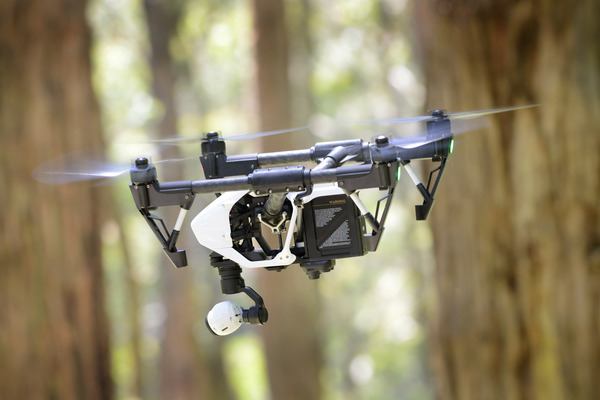Drones will be targeted in a crackdown on harassment of whales off the Surf Coast, authorities have revealed.
Wildlife officers began patrolling to “protect whales” from Lorne to Apollo Bay and further down the coast this week.
Operation Lisburn would run through whale breeding season until the end of October, said the Department of Environment, Land, Water and Planning (DELWP).
The operation would “closely monitor drones and powered boats” to ensure they remained at a safe distance from critically endangered southern right whales and other whale species, DWELP said.
DWELP’s compliance operations program manager confirmed the focus on drone operators, with a warning of fines over $3000.
“Operation Lisburn will see a particular focus on the use of drones around whales, which is an emerging and challenging issue for us,” Mark Breguet said.
“In the last two years we’ve seen a sharp rise in suspected illegal drone activity around whales through content on social media and reports from the public about drones flying close to whales.
“We appreciate that drone operators are keen to capture photos and footage of these majestic mammals, however the buzzing from drone motors has the potential to distress whales. Unless drone operators have a special wildlife permit, these aircraft are not permitted to fly within 500 metres of whales.”
DWELP was investigating “several reports” in the past week alone of drones too close to whales at Portland, Mr Breguet said.
“We need the public to understand that when vessels or drones operate near whales, these vulnerable mammals are at risk of being distressed, or worse, struck and injured.”
Boaters and drone operators faced fines of up to $3223.80 for coming to close to whales, Mr Brequet warned.
The minimum distance for recreational boats was 200m but “high impact vessels such as jet skis” had to stay at least 300m away, Mr Breguet said.
Even swimmers had a 50m limit, he said.
The operation’s patrolling officers hoped to speak with “hundreds of people” about the whale safety distances.
“As well as raising awareness about the risks of vessels being near whales, officers will monitor boating activities and investigate when boat operators are found to be too close to whales,” Mr Breguet said.
He asked anyone witness to whale distance beaches to note relevant details and report them “immediately” by phoning DWELP on 136 186.







